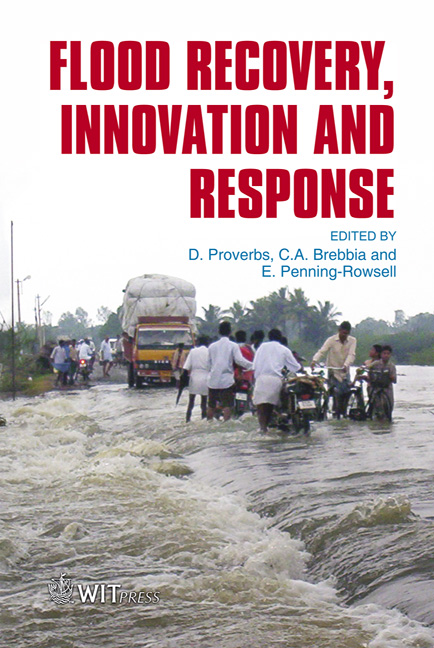Differential Vulnerability In Coastal Communities: Evidence And Lessons Learned From Two Deltas
Price
Free (open access)
Transaction
Volume
118
Pages
11
Page Range
283 - 293
Published
2008
Size
344 kb
Paper DOI
10.2495/FRIAR080271
Copyright
WIT Press
Author(s)
M. Marchand
Abstract
Flood risk management requires a sound understanding and assessment of flood vulnerability of society and households. A key issue in assessing flood vulnerability is its differential nature: not all people and communities are equally vulnerable to flooding, even if they live in the same hazard zone. The concept of differential vulnerability is illustrated by two case studies with a more or less comparable physical environment but entirely different socio-economic setting: New Orleans in the Mississippi Delta, USA and the Godavari Delta in coastal Andhra Pradesh, India. The results of this comparison show that in both countries the less advantageous sections of society are the most vulnerable. However, macro-economic resilience tends to be greater in India than in the United States. Both examples show that vulnerability is intricately entangled with the fabric of social life itself, with politics, power, history and environment. Reducing vulnerability to flooding therefore requires an integrated approach taking into account not only aspects of disaster management but also of equitable development. Keywords: vulnerability, flood risk management, cyclone, hurricane Katrina, USA, India. 1 Introduction Tragic events such as Hurricane Katrina in 2005 and the Asian Tsunami in 2004 have highlighted coasts as being hazardous places to live. Many low lying coasts have a track record of natural disasters due to their dynamic environment, while at the same time have attracted human occupation because of their natural resources. This apparent paradox is likely to increase in view of future climate
Keywords
vulnerability, flood risk management, cyclone, hurricane Katrina, USA, India.





